On February 9, an event was held in Jawaharlal Nehru University regarding the hanging of 2001 Parliament Attacks convict Afzal Guru. The events that followed ensured the University has stayed in the headlines across the nation for the last three months, as the debate on nationalism raged on.
For the last ten days, 15 JNU students have been on a hunger strike to protest against the university’s decision to rusticate some of them and fine others over the February 9 event. But unlike February, the same kind of support is missing.
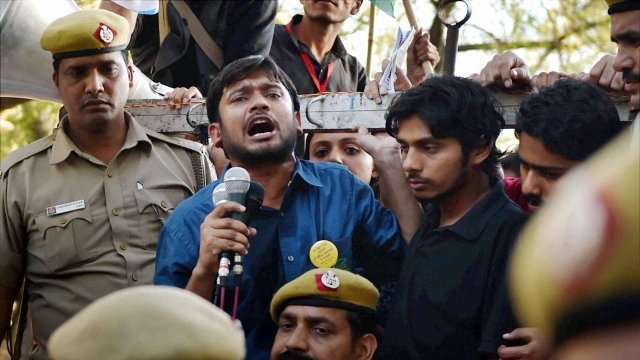
At the JNU’s administration building, the number of students who turn up to meet their counterparts on strike is low during the day. More students trickle in around evening to inquire about the health of those on strike. Cultural programs and speeches are held in the night, but the crowd is far less than before. There television news crews are missing too.
JNU students’ union president Kanhaiya Kumar had warned that the university administration had take action against the students at a time when “most of the students are busy with preparations for examinations or are appearing in exams.”
“We know why such a severe action has been taken against students at this time. It’s been done to break the students movement,” Kanhaiya told a press conference earlier.
Another prominent face from the controversy, Umar Khalid, agrees.
“There’s a reason why the administration took action against students a month-and-a-half after the enquiry report was filed. They want to make an example of us,” Khalid, a PhD student and one of the 15 students on an indefinite hunger strike, told ScoopWhoop.
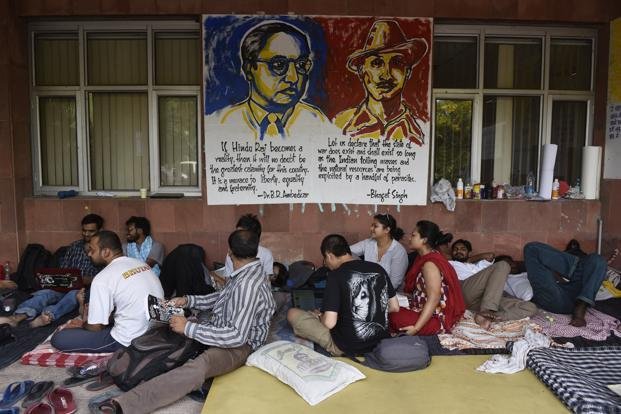
Khalid claims the corporate media and state is trying to isolate the JNU movement.
“We can’t decide when and how media pays attention to us. Initially, media paid attention to JNU, not for any help, but to demonize it. It was only when journalists were beaten up, the opinion began to change. When protests against Rohith Vemula’s suicide were going on Hyderabad Central University, the media reported it only after 10 days. I think this movement has reached that stage now,” he said.
Jawaharlal Nehru University Teachers Association’s (JNUTA) General Secretary, Professor Bikramaditya Choudhary, says it would be premature to claim the support for the JNU students has reduced.
“Civil society groups and activists haven’t withdrawn their support for the students. There has been a huge response to the mass relay hunger strike from JNUSU,” Choudhary told ScoopWhoop.
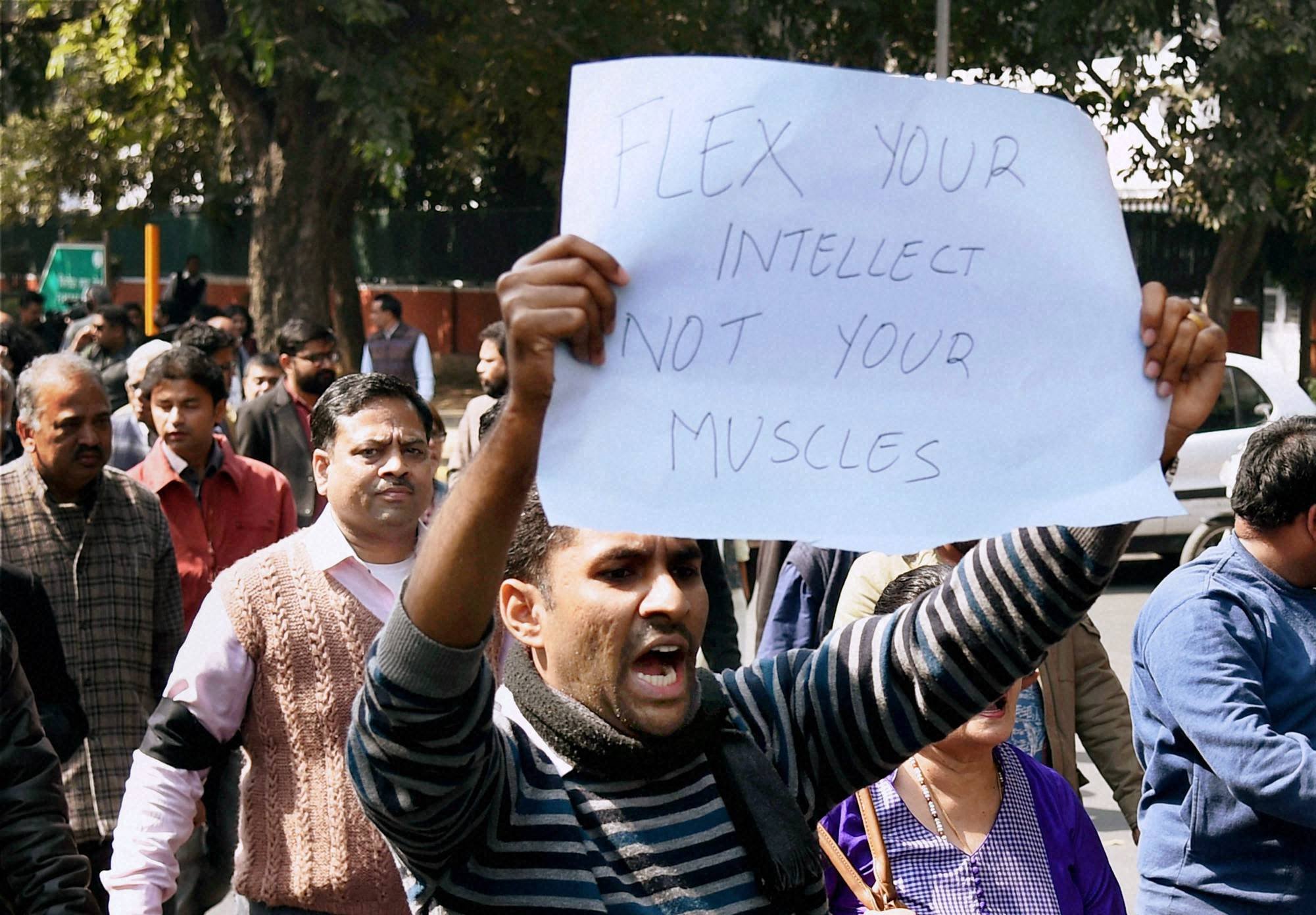
On Tuesday, 70 teachers and 180 students sat on relay hunger strike in support of the on-going hunger strike against the decision of high-level committee of JNU.
The professor also said that examinations will be over soon and the coming days may see more students coming out in support of those on the hunger strike.
“This is the second phase of our struggle and the toughest than the first one. We need to create public support for us,” Anant Kumar, a JNU student said.
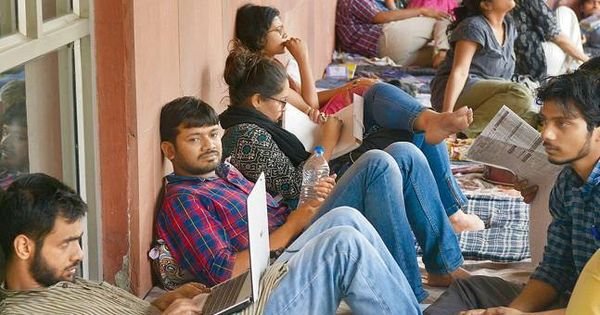
Anant, who is pursuing his PhD from the university’s Law and Governance department, sat on a hunger strike for 15 days last year seeking more hostels in the university. He’s part of the indefinite strike this time too.
“It’s different this time. I am afraid someone might die. It’s a do-or-die situation for us,” Anant told ScoopWhoop.
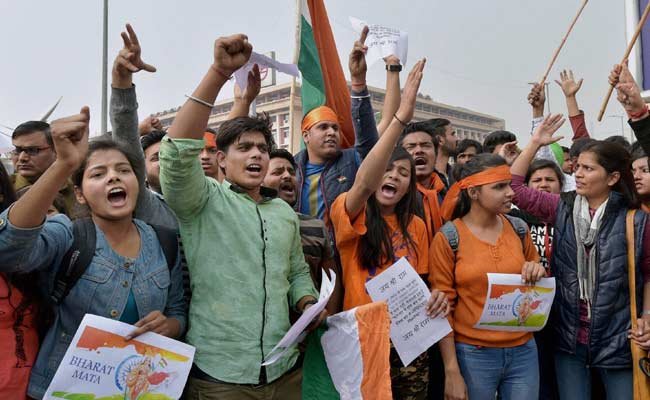
Anant acknowledges the students’ movement might not have been debated nationally if the university’s administration had handled the matter internally.
“It would have then remained a campus issue. But it became a national issue. JNU was already a target and it provided golden chance for them; first for ABVP and then BJP,” he said.
A sociology scholar from the university, who didn’t wish to be named, said the university’s plan in this case isn’t the smartest one.
“It’s going to backfire again. These students are not ordinary students now. They carry a name and a solidarity from outside,” the sociologist scholar told ScoopWhoop.
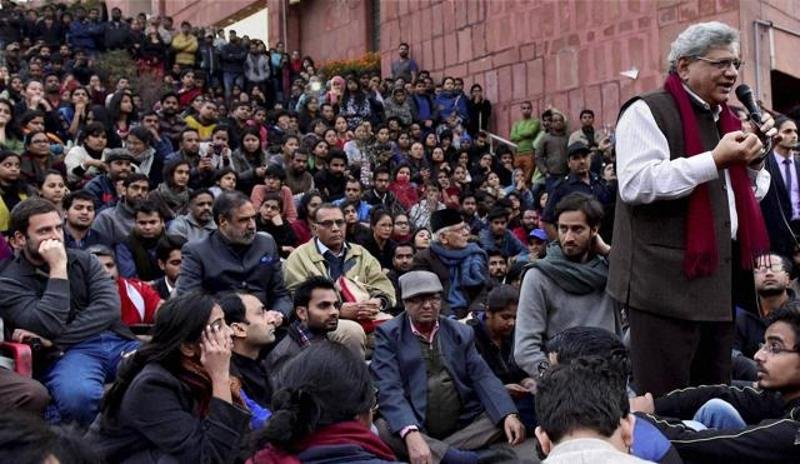
On Friday, JNU Registrar Pramod Kumar issued an appeal from the administration to students against “involving outsiders” in their protests, and expressed its apprehension that the practice might “encourage other groups of teachers and students to do the same.” It also stated that the administration might “take steps to evict the outsiders in order to protect the academic atmosphere of the university.”
Secretary of the All India Progressive Women’s Association and a vocal supporter of protests in JNU, Kavita Krishnan sees this as a sign of just how much support the students enjoy.
“If there’s no external solidarity and support for JNU then what prompted JNU administration to issue a notification that outsiders will be evicted from the campus? Many universities in the country have tried to use this tactic,” Krishnan told ScoopWhoop.
Feature image source: PTI

















